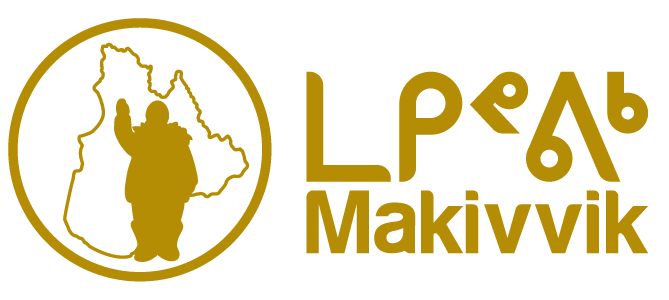NRC Profile
Nunavik Research Centre
The Nunavik Research Centre (NRC) was established in Kuujjuaq in 1978 after the signing of the James Bay & Northern Quebec Agreement, initially to monitor and collect land use & ecological data in the Nunavik region.
The NRC is operated under the Resource Development Department of Makivvik. The Centre employs a Director, a Wildlife Biologist, an Analytic Toxicologist, a Wildlife Disease Specialist, a Fisheries Biologist, three Wildlife Technicians and an Executive Secretary.
The majority of the work carried out by the NRC involves conducting scientific research on the natural environment and wildlife, including country food. This research ultimately supports policy development and political work carried out by Makivvik. The NRC also administers monitoring programs that directly respond to the needs of Inuit in all of the 15 Nunavik communities as well as in neighbouring Inuit regions.
The NRC engages in numerous collaborative research projects and partners on a continual basis with other Northern organizations (such as wildlife co-management boards, hunting, fishing and trapping associations, Northern Villages and landholding corporations) as well as with southern research institutions, universities and all levels of government to address issues that are of direct relevance to Northerners.
Environmental Studies
The NRC conducts in-house environmental studies and also provides expertise on a contractual basis to other organizations. Studies are often conducted in collaboration with university and government, most notably; ArcticNet, the Northern Contaminants Program, Health Canada, the Department of Fisheries and Oceans, Environment and Climate Change Canada and the Ministère des Forêts, de la Faune et des Parcs.
Fish and Wildlife Studies
The NRC operates a number of ongoing wildlife monitoring programs and also partners with universities and federal and provincial government agencies to conduct ecological studies on many northern species. These include, but are not limited to: arctic charr, Atlantic salmon, lake trout, beluga, walrus, seal, polar bear, caribou, muskoxen, foxes, birds of prey, waterfowl and marine organisms.
Staff often spend time in the field conducting specialized studies and they also work with local hunters in order to collect samples and information. The NRC owns and operates two small launches for both inshore and offshore marine-based projects.
Trace Metal Analytical Laboratory
This state-of-the-art facility is the only one of its kind in the eastern Arctic. It is equipped with two atomic absorption spectrometers for measuring heavy metal levels (e.g. mercury, lead and cadmium) in country foods such as fish and marine mammals. Internal and external quality assurance protocols are routinely carried out to ensure analytical accuracy and precision. This facility is frequently called upon to collaborate on metal contaminant research with government agencies, universities and the Nunavik Regional Board of Health and Social Services.
Pathology Laboratory
The NRC monitors wildlife diseases that affect animal health or can infect humans. The Trichinellosis Prevention Program tests walrus meat following guidelines established with the Canadian Food Inspection Agency. Results are available and transmitted to Nunavik’s Public Health officer within 24 hours of receiving samples from walrus hunting communities. Other wildlife diseases are monitored in cooperation with university researchers and government agencies.
Library
The NRC has a small but comprehensive library that houses, among other things, a unique collection of reports on wildlife and environmental studies dating back to the very beginning of the centre. Much of this collection has been archived and is now accessible online via “ASTIS.”
The Library also houses the personal collection of rare and antique books and artifacts belonging to the late Dr. D. W. Doidge, the Centre’s longest serving director.
Cartographic Services
Equipped with professional-grade technology, the NRC produces color maps and posters for field studies and presentation purposes. Clients include many local and regional organizations, as well as visiting researchers and students.
Education and Outreach
An important part of the mandate of the NRC is to introduce youth to science. As often as possible staff participate in education and outreach activities. For example, hiring summer students to work in the labs and the field, training high school students in both traditional land skills and applied science, and introducing kindergarten students to pond life.
